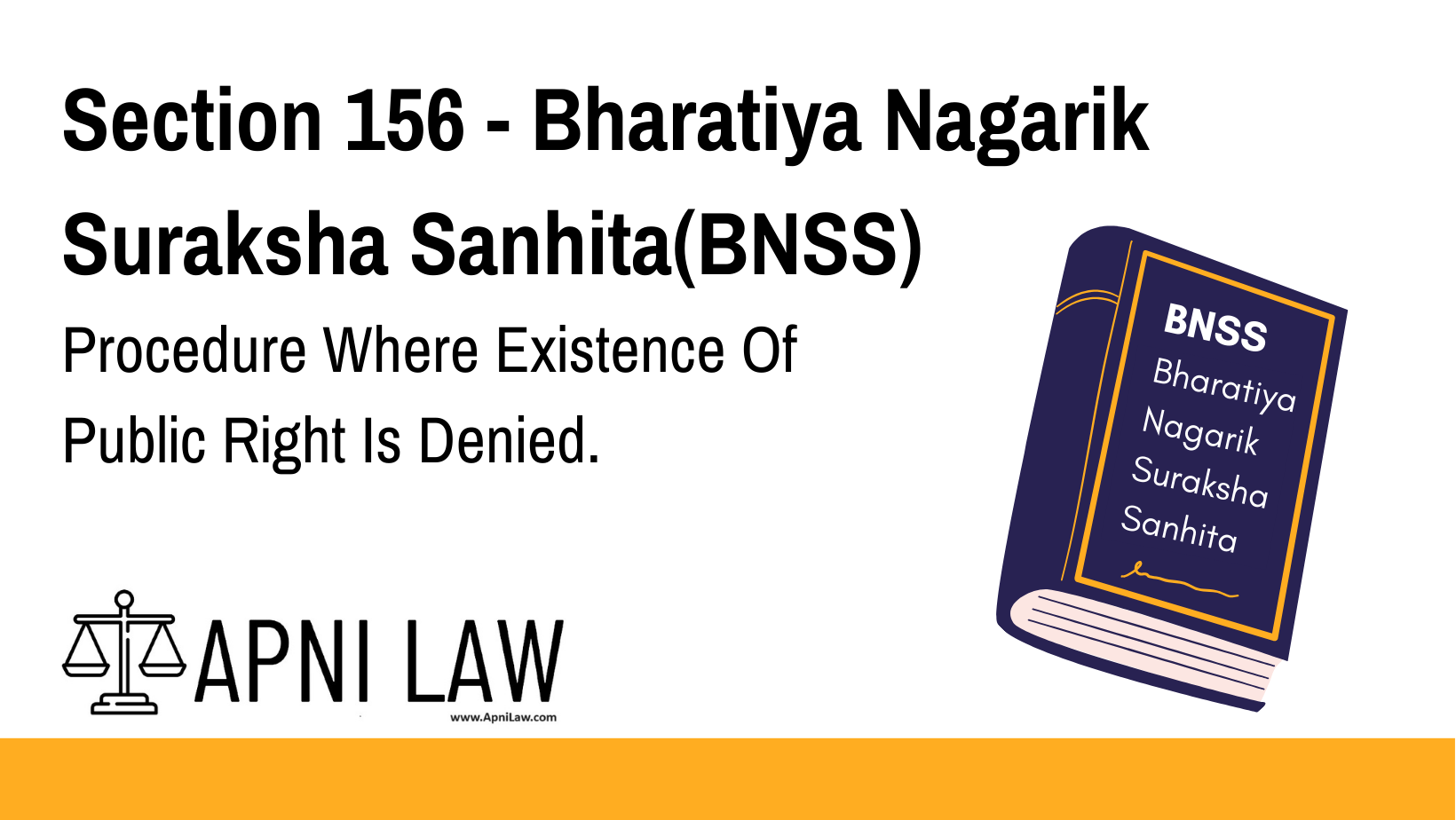BNSS Section 156: Procedure Where Existence Of Public Right Is Denied
Code: Section 156 BNSS
- (1) Where an order is made under Section 152 BNSS for the purpose of preventing obstruction, nuisance, or danger to the public in the use of any way, river, channel, or place, the Magistrate shall, on the appearance before him of the person against whom the order was made, question him as to whether he denies the existence of any public right in respect of the way, river, channel, or place. If he does so, the Magistrate shall, before proceeding under Section 157 BNSS, inquire into the matter.
(2) If, in such inquiry, the Magistrate finds that there is any reliable evidence in support of such denial, he shall stay the proceedings until the matter of the existence of such right has been decided by a competent Court. If he finds that there is no such evidence, he shall proceed as laid down in Section 157 BNSS.
(3) A person who has, on being questioned by the Magistrate under sub-section (1), failed to deny the existence of a public right of the nature therein referred to, or who, having made such denial, has failed to adduce reliable evidence in support thereof, shall not in the subsequent proceedings be permitted to make any such denial.
Explanation of Section 156 BNSS
Section 156 of the Bharatiya Nagarik Suraksha Sanhita, 2023 (BNSS) deals with the procedure when a person denies the existence of a public right concerning a way, river, channel, or place after an order under Section 152 BNSS has been issued.
Key Provisions
- Public Right Dispute: If a person disputes the existence of a public right, the Magistrate must first inquire into the matter before proceeding further.
- Stay of Proceedings: If there is reliable evidence supporting the denial, proceedings are paused until a competent Court decides the matter.
- Forfeiture of Right to Deny Later: If a person fails to deny the right initially or does not provide supporting evidence, they cannot later deny it during proceedings.
This provision ensures that any denial of public rights is substantiated with evidence and prevents unnecessary delays in addressing public obstructions or nuisances.
Illustration
Example 1: Denial of Public Right on a Road
A local shopkeeper places stalls on a public road, blocking access. A Magistrate issues an order under Section 152 BNSS to remove the obstruction. The shopkeeper claims that the road is private property. The Magistrate must now investigate the validity of this claim under Section 156 before proceeding under Section 157 BNSS.
Example 2: No Evidence for Denial
A restaurant owner builds an extended seating area on a public footpath. When questioned by the Magistrate, he denies that the footpath is public property but fails to provide supporting documents. Since there is no reliable evidence, the Magistrate proceeds as per Section 157 BNSS to enforce the removal.
Common Questions and Answers on Section 156 BNSS
What happens if a person denies the existence of a public right under Section 156 BNSS?
- The Magistrate must first conduct an inquiry before proceeding under Section 157 BNSS.
Can a person deny the existence of a public right at any stage?
- No. If they fail to deny initially or fail to provide reliable evidence, they cannot later dispute the public right.
What if there is reliable evidence supporting the denial?
- The proceedings will be paused until a competent Court determines the matter.
What happens if the person fails to provide any evidence for denial?
- The Magistrate will proceed as per Section 157 BNSS to enforce the original order.
Conclusion
Section 156 BNSS provides a structured process for handling disputes over public rights. It ensures that denials are backed by evidence and prevents frivolous claims that could obstruct public access. The provision balances individual claims with public interests, ensuring that legitimate disputes are referred to competent Courts while frivolous denials are dismissed swiftly.
For more expert legal insights, visit ApniLaw today! 🚀








